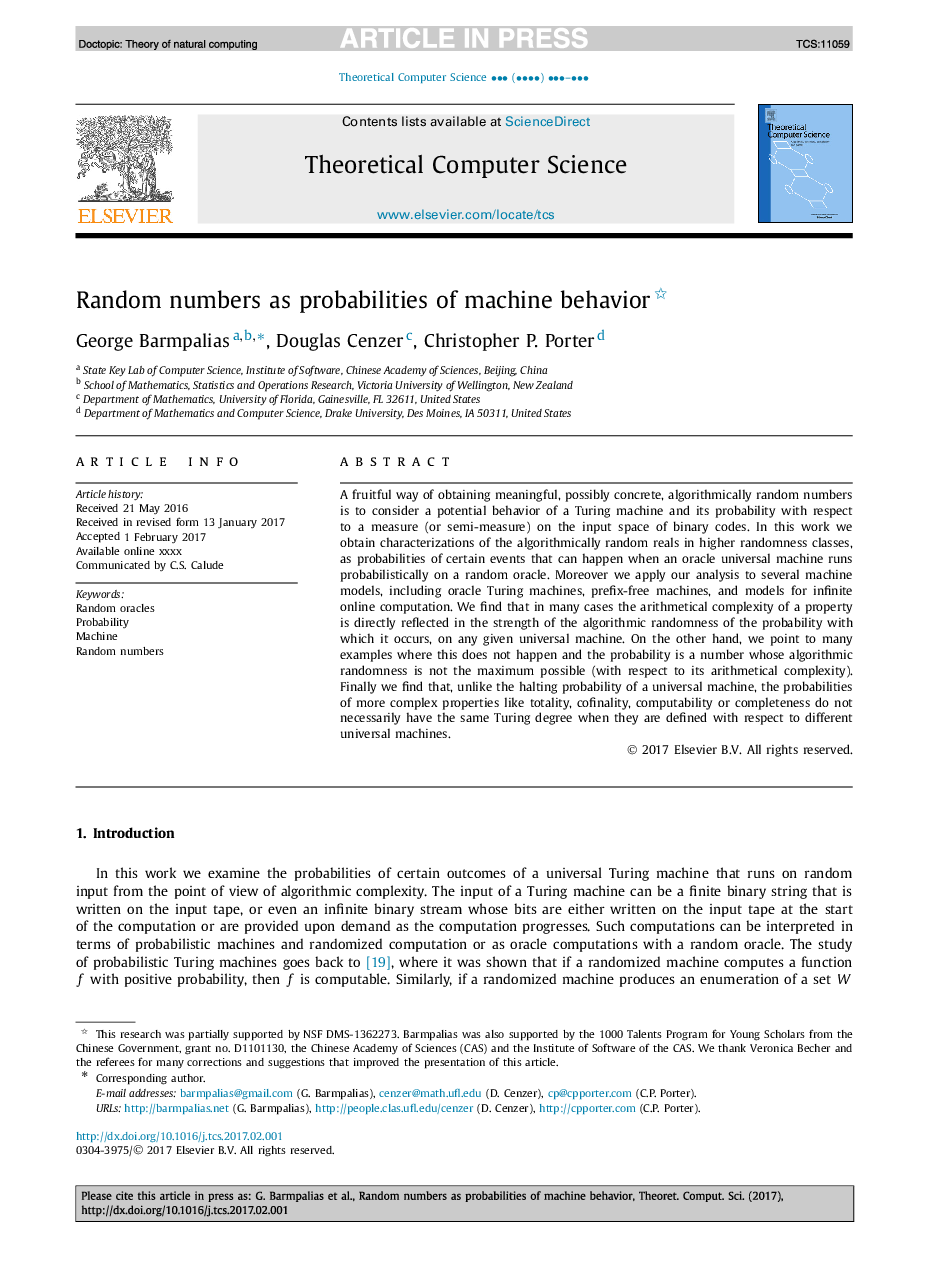| Article ID | Journal | Published Year | Pages | File Type |
|---|---|---|---|---|
| 4952123 | Theoretical Computer Science | 2017 | 18 Pages |
Abstract
A fruitful way of obtaining meaningful, possibly concrete, algorithmically random numbers is to consider a potential behavior of a Turing machine and its probability with respect to a measure (or semi-measure) on the input space of binary codes. In this work we obtain characterizations of the algorithmically random reals in higher randomness classes, as probabilities of certain events that can happen when an oracle universal machine runs probabilistically on a random oracle. Moreover we apply our analysis to several machine models, including oracle Turing machines, prefix-free machines, and models for infinite online computation. We find that in many cases the arithmetical complexity of a property is directly reflected in the strength of the algorithmic randomness of the probability with which it occurs, on any given universal machine. On the other hand, we point to many examples where this does not happen and the probability is a number whose algorithmic randomness is not the maximum possible (with respect to its arithmetical complexity). Finally we find that, unlike the halting probability of a universal machine, the probabilities of more complex properties like totality, cofinality, computability or completeness do not necessarily have the same Turing degree when they are defined with respect to different universal machines.
Related Topics
Physical Sciences and Engineering
Computer Science
Computational Theory and Mathematics
Authors
George Barmpalias, Douglas Cenzer, Christopher P. Porter,
